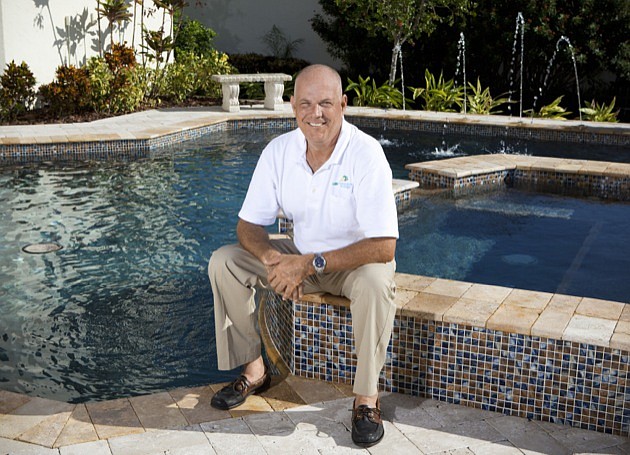- November 26, 2024
-
-
Loading

Loading

After two decades of a near-workaholic existence as a turnaround executive in the restaurant industry, Gregg Kaplan thought retirement would be heavenly.
Instead, the onetime CEO of Cinnabon was bored. Says Kaplan: “You can only drink so much, play so much golf and smoke so many cigars until all of a sudden you run out of things to do.”
So Kaplan started a contracting business, with a focus on building and remodeling homes. Despite the economy, the firm, Longboat Key-based LBK Contractors & Design, has been successful. It has also provided Kaplan, 54, a new calling.
The Cinnabon stint, meanwhile, was a highlight of a career that included several executive positions at other restaurant chains, including Captain D's Seafood, Shoney's and Rally's Hamburgers.
Kaplan was placed in some of the executive positions while he worked at AFC Enterprises, a $146.4 million Atlanta-based firm that owns several restaurant chains.
Kaplan's CEO term at Cinnabon was marked by fast growth. The company had $67 million in annual sales and 340 stores in 30 states when he took over in 1998. When he left in 2002, the chain had $128 million in annual sales and 600 stores in 47 states and 17 countries.
Kaplan reflects on his career with the Business Review.
Mulligan Wishes: Kaplan says he has no business regrets. But he does have one decision he'd like to do over, when he was vice president of strategic development at AFC Enterprises.
Kaplan says he stayed silent when the board of directors wanted to make a risky acquisition of a bagel chain littered with under-capitalized franchisees and old restaurants. “But after hearing the entire roundtable of people say to go for it, I did not have the courage to say 'this is not the right deal' and put a stop to it,” says Kaplan. “I cratered to the pressure of the executive committee.”
Go Smarter: Even though it's a well-worn business axiom, Kaplan says he didn't want to hire people better or smarter than him because he worried those people threatened his job. “Once I got over that, I always hired people who weren't necessarily looking for a job, but were the best in the industry,” says Kaplan. “Getting a full management team of those talented people did more to skyrocket my career and actually made me look really good.”
Knocked Down: When Kaplan was a Wendy's marketing executive, a boss, a mentor named John Pietro, lectured him. Says Kaplan: “He told me I wasn't quite as good as I thought and I should get over myself.”
It stung, but Kaplan says it forced him to become a better leader. “That following year, I was awarded the 'top marketer' at Wendy's,” Kaplan says. “I guess the talk was a good thing.”
Power Lunch: One of Kaplan's dream lunches would be with golfer Phil Mickelson, who is known for taking big risks on the course. “Most times it pays off,” Kaplan says, “sometimes it doesn't.”
Persistence Pays: Kaplan was part of a team of AFC Enterprises executives charged with acquiring a chain that could compete with Starbucks. They chose Seattle's Best Coffee. The company, though, rejected Kaplan at least a dozen times, including one time where the CEO shouted that the company wasn't for sale.
Kaplan made several Atlanta-to-Seattle trips for in-person conversations. In the end he patiently wooed the firm by explaining how the deal would help the business grow. “Everything great,” says Kaplan, “is hard to come by.”
Rapid Results: Kaplan says working for a publicly traded company, AFC Enterprises, was a bonus in terms of access to capital. But the pressure to produce stellar quarterly results was palpable. Almost all of his decisions were heavily scrutinized. Says Kaplan: “The restaurant business is where you learn a lot of discipline.”
Yum Yum: One of the best parts of running Cinnabon, says Kaplan, was the tasty treats were easy to sell. “This product was so outstanding,” he says, “that if you didn't like it, it was because of the fat content.”
Image Protection: Kaplan turned down several offers to form a branding partnership with Pillsbury while he was Cinnabon CEO. He worried that the product would become commoditized if it could be bought in a supermarket. “I didn't want to dilute the brand,” he says. The company has since partnered with Pillsbury.
Lessons Learned: Kaplan says executives should be less worried about mistakes. Missteps based on calculated risks, he says, are what ultimately makes a brand or service successful. “Any leader can run and grow a business in good times,” Kaplan says. “It takes great leaders to manage through the tough times.”